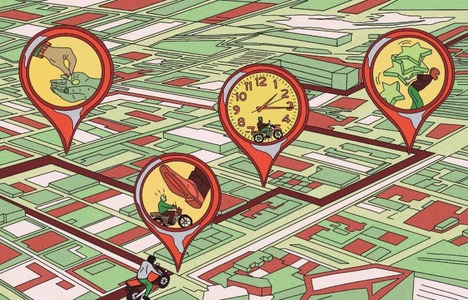KARACHI: The gig economy has been encouraging a race to the bottom with respect to the working conditions, according to a research report by Fairwork Foundation of the Oxford University and the Centre for Labour Research, Pakistan.
The country has nearly two per cent of its labour force engaged in the gig economy through online and location-based services, a press release said on Friday.
Seven of the most popular gig economy platforms in Pakistan have been rated according to how fairly they treat workers. Only Gharpar, Uber and Foodpanda were able to earn a score, obtaining one out of 10 each.
The study found that most of the companies — Careem, Cheetay, Bykea and Daraz — failed to ensure minimum standards of fair work such as ensuring all workers earn above the national minimum wage.
This is the first study of its kind in Pakistan that scores companies on labour standards such as pay, employment conditions, contracts, management and representation.
Labour economist Dr Aliya Hashmi Khan, columnist Mutaher Khan, App Drivers and Couriers Union President Yaseen Aslam, International labour Organisation Governing Body member Zahoor Awan, Johns Hopkins University Lecturer Syed Muhammad Ali, former Central Labour law adviser Raja Faiz ul Hassan Faiz and Ministry of Overseas Pakistanis and Human Resource Development’s Azhar Malik were the panellists.
According to Iftikhar Ahmad, principal investigator of the Fairwork Pakistan, an unexpected phenomena of negative income hovers over the platform workers when their monthly costs exceed their incomes.
The report titled “Pakistan Ratings 2022: Labour Standards in the Platform Economy” ranks platforms against five principles of fair work, giving each company a score out of 10. The report found that the majority of the seven platforms are failing to meet the basic standards of fairness when benchmarked against the Fairwork principles.
Only one (Gharpar) of the seven platforms demonstrated that its workers are guaranteed to be paid the minimum wage after costs. Only Uber provides sufficient protection from the task-related risks in their daily work. Only Foodpanda provided the evidence of clear and accessible contracts or terms of service.
None of the seven platforms assessed by researchers had a formalised process where workers could appeal decisions. None of the platforms allowed for collective representation of workers, it said.
Published in Dawn, August 27th, 2022














































